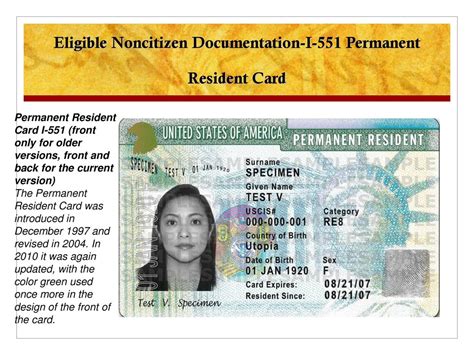An eligible non-citizen (ENC) is an individual who is not a U.S. citizen or national, but who meets certain criteria that make them eligible for certain public benefits or programs. These criteria may vary depending on the specific benefit or program, but generally include:

- Lawful presence in the United States
- Residence in the state or locality where the benefit or program is being provided
- Meeting income or other eligibility requirements
Who is considered an Eligible Non-Citizen?
There are a number of different categories of individuals who may be considered eligible non-citizens, including:
- Lawful permanent residents (green card holders)
- Asylees and refugees
- Certain non-immigrant visa holders (such as H-1B, H-4, L-1, and L-2 visa holders)
- Individuals granted Temporary Protected Status (TPS)
- Individuals granted Deferred Action for Childhood Arrivals (DACA)
What Benefits and Programs are Eligible Non-Citizens Eligible For?
Eligible non-citizens may be eligible for a variety of public benefits and programs, depending on their specific status and the state or locality in which they reside. These benefits and programs may include:
- Health insurance
- Food assistance
- Cash assistance
- Housing assistance
- Education assistance
- Driver’s licenses
- In-state tuition at public colleges and universities
Why is it Important to Understand Eligible Non-Citizen Status?
Understanding eligible non-citizen status is important for a number of reasons, including:
- Ensuring that eligible individuals have access to essential benefits and programs
- Preventing discrimination against non-citizens
- Promoting the economic and social well-being of our communities
Common Questions about Eligible Non-Citizens
Q: What is the difference between an eligible non-citizen and a U.S. citizen?
A: U.S. citizens have all the rights and privileges of citizenship, including the right to vote and hold public office. Eligible non-citizens do not have all the rights and privileges of citizenship, but they may be eligible for certain public benefits and programs.
Q: How do I become an eligible non-citizen?
A: The criteria for becoming an eligible non-citizen vary depending on the specific benefit or program. Generally, you must be lawfully present in the United States, reside in the state or locality where the benefit or program is being provided, and meet income or other eligibility requirements.
Q: What are the benefits of being an eligible non-citizen?
A: Eligible non-citizens may be eligible for a variety of public benefits and programs, such as health insurance, food assistance, cash assistance, housing assistance, education assistance, driver’s licenses, and in-state tuition at public colleges and universities.
Q: What are the risks of being an eligible non-citizen?
A: Eligible non-citizens may face discrimination or other challenges, such as difficulty obtaining employment or housing. They may also be subject to deportation if they violate the terms of their visa or status.
Conclusion
Eligible non-citizens are an important part of our communities. They contribute to our economy and society, and they deserve to have access to the same benefits and programs as other residents. By understanding eligible non-citizen status, we can help to ensure that all individuals have the opportunity to succeed in the United States.
Additional Resources
- U.S. Citizenship and Immigration Services (USCIS)
- National Immigration Law Center
- American Immigration Council
